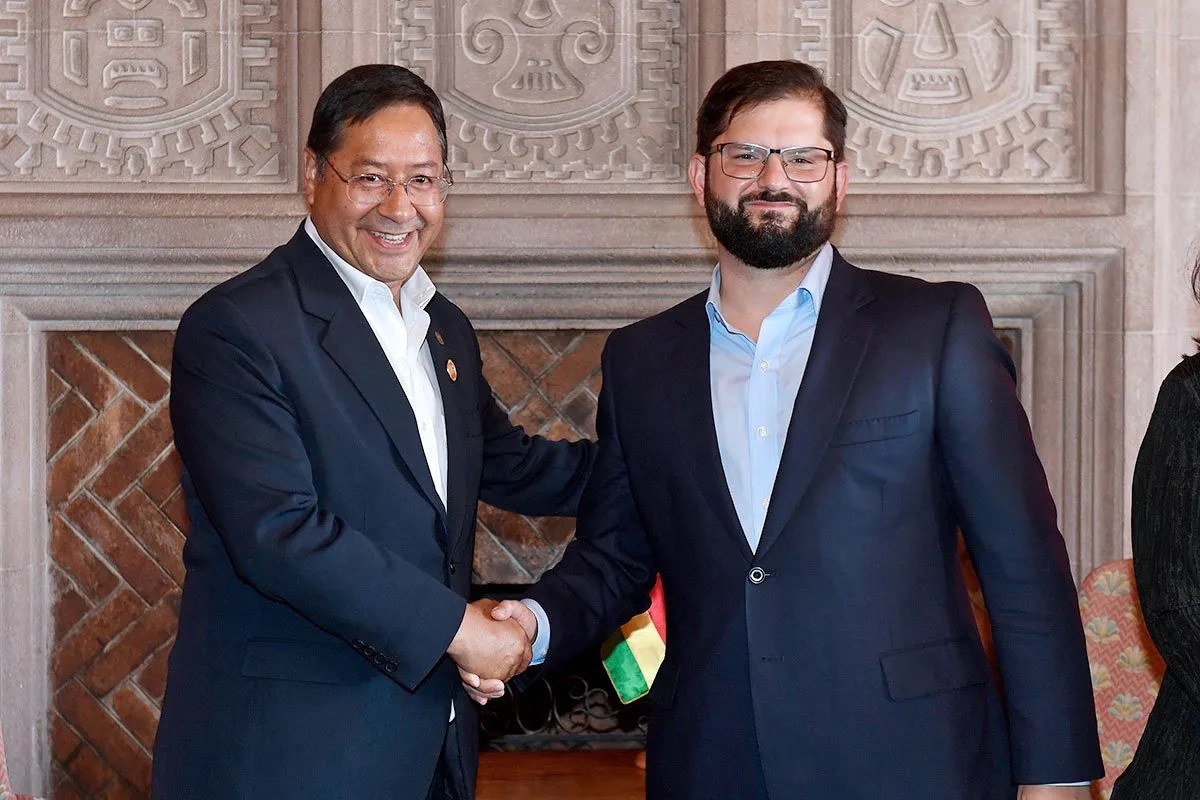RIO DE JANEIRO, BRAZIL – Former Bolivian officials and politicians affirmed that a “bilateral agenda” is necessary to re-establish diplomatic relations with Chile. There are issues such as the transit of people or cargo through the border without leaving aside the maritime claim.
President Gabriel Boric said on March 14 that with Bolivia, there are several “elements of integration that we can work on. The resumption of diplomatic relations is a point of arrival, I would love to move towards that”.
In this regard, former Bolivian Foreign Minister Javier Murillo told EFE that a resumption of diplomatic relations with Chile is the “highest point of political dialogue” and that for now, he does not see what those “points of understanding” could be.

Murillo recalled Chile’s lawsuit in the International Court of Justice (ICJ) for the waters of the Silala River, the lack of progress in the Bolivian maritime claim after the judgment of that same instance in 2018 that established that Chile has no obligation to negotiate sovereign access to the sea and the frequent problems of free transit on the border, pose difficulties still unresolved.
Boric affirmed that “Chile does not negotiate its sovereignty, as I imagine no country does. I understand that President (Luis) Arce has to say certain things, but what I have invited him to do, and I believe that there is a good disposition of both, is not to put the cart before the horse”.
Bertha Acarapi, a legislator of the governing Movement Towards Socialism (MAS), told EFE that Boric’s arrival as President of Chile will allow the relationship between the two countries “to be more fluid” but also considered that Bolivia is not going to “give up” on obtaining access to the sea.
Meanwhile, Gustavo Aliaga, diplomat and deputy of the opposition Comunidad Ciudadana (CC), was more cautious, considering that “it will not be possible immediately” to restore diplomatic relations with Chile.
Aliaga told EFE that the priority is a “bilateral agenda” in common issues such as the transit of people and cargo across the shared border or the fight against drug trafficking and that now, “it makes no sense” to talk about the re-establishment of diplomatic relations.
After being consulted by EFE, Bolivian Foreign Ministry officials said that there would be no official statement on the declarations of the recently sworn-in Chilean president.
The Constitution promulgated in 2009 establishes that the maritime claim and the exercise of sovereignty are “permanent and inalienable” objectives of the Bolivian state.
The two countries have not had diplomatic relations at an ambassadorial level since 1978 due to the centuries-old Bolivian claim to sovereign access to the Pacific Ocean lost in a war at the end of the 19th century.
The bilateral situation has been particularly tense in recent years due to the lawsuit filed in 2013 by the government of Evo Morales before the ICJ.
And next April, that court will begin the round of oral arguments for the complaint that Chile filed for the use of the waters of the Silala River with which it seeks to prevent its flow into its territory with the argument that it is an international river, while Bolivia argues that it is actually springs that are born within its boundaries.

